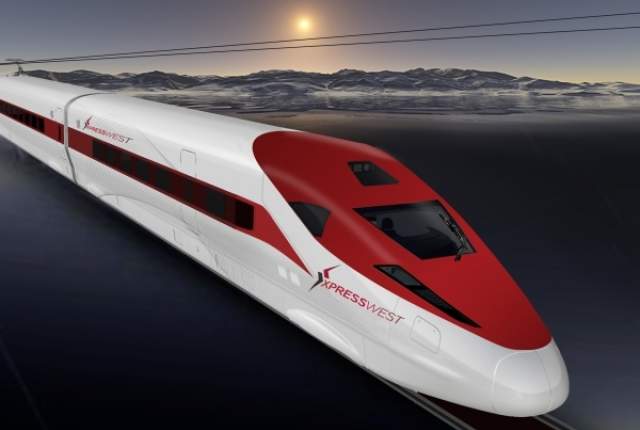XpressWest, the private U.S. firm proposing to build a high-speed rail link between Las Vegas and Los Angeles, terminated a joint venture with Chinese companies less than nine months after the deal was announced, citing delays faced by its partner.
Las Vegas-based XpressWest said the decision to end the relationship stemmed from problems with “timely performance” and challenges that the Chinese companies, grouped under a consortium called China Railway International (CRI), faced “obtaining required authority to proceed with required development activities”.
XpressWest was started by Las Vegas developer Marnell Companies. It formed the venture with the Chinese consortium in September, infusing $100 million into the project. XpressWest had expected to break ground as soon as this year on the project, which one analyst estimated to be worth $5 billion.
The announcement is a blow to China, which has built the world’s largest high-speed rail network in less than a decade. The XpressWest project was seen as a foothold into a burgeoning U.S. high-speed rail market and an opportunity to showcase China’s technology.
China’s CRRC Corp the world’s biggest train maker by revenue, joined the consortium in September.
XpressWest chief executive Tony Marnell said in a statement that his company’s “ambitions outpace CRI’s ability to move the project forward timely and efficiently”.
Many startup companies have died waiting too long for money from the Chinese government or companies
After 30 years of reform, China’s economy remains bound by red tape, which drags down productivity considerably. Anti-corruption efforts have made it more difficult to grease the wheels. So excessive delays in providing funds and making decisions is what is left. Even Chinese Premier Li Keqiang expressed irritation with bureaucracy, asking, “Why is it so difficult for ordinary people to get things done?”, and “Why does the government put up so many obstacles that stop people getting things done?”
The Chinese government introduced a seven-day rule for ministries to issue new policies once they had been approved by China’s cabinet, the State Council.
XpressWest said it will now aggressively pursue other development partnerships and options.
The biggest challenge has been a federal funding requirement that high-speed trains be manufactured in the United States, even though no such trains are produced in the country, Marnell said.
“This inflexible requirement has been a fundamental barrier to financing high-speed rail in our country,” Marnell said. “Is our leadership going to force projects throughout the United States to seek financial support for infrastructure in our country from foreign governments?”
XpressWest said it was anticipating the completion of environment work to develop the Southern California portion of the rail line, with environmental approvals expected by September.
SOURCES – Reuters, XpressWest, South China Morning Post

Brian Wang is a Futurist Thought Leader and a popular Science blogger with 1 million readers per month. His blog Nextbigfuture.com is ranked #1 Science News Blog. It covers many disruptive technology and trends including Space, Robotics, Artificial Intelligence, Medicine, Anti-aging Biotechnology, and Nanotechnology.
Known for identifying cutting edge technologies, he is currently a Co-Founder of a startup and fundraiser for high potential early-stage companies. He is the Head of Research for Allocations for deep technology investments and an Angel Investor at Space Angels.
A frequent speaker at corporations, he has been a TEDx speaker, a Singularity University speaker and guest at numerous interviews for radio and podcasts. He is open to public speaking and advising engagements.


